 Petzlover
Petzlover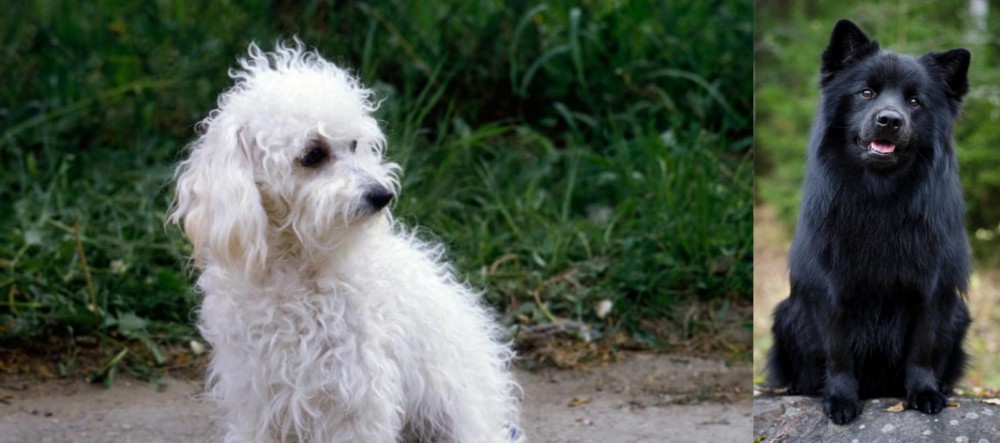 Bolognese is originated from Italy but Swedish Lapphund is originated from Sweden. Bolognese may grow 21 cm / 8 inches shorter than Swedish Lapphund. Bolognese may weigh 17 kg / 37 pounds lesser than Swedish Lapphund. Both Bolognese and Swedish Lapphund has almost same life span. Both Bolognese and Swedish Lapphund has almost same litter size. Both Bolognese and Swedish Lapphund requires Moderate Maintenance.
Bolognese is originated from Italy but Swedish Lapphund is originated from Sweden. Bolognese may grow 21 cm / 8 inches shorter than Swedish Lapphund. Bolognese may weigh 17 kg / 37 pounds lesser than Swedish Lapphund. Both Bolognese and Swedish Lapphund has almost same life span. Both Bolognese and Swedish Lapphund has almost same litter size. Both Bolognese and Swedish Lapphund requires Moderate Maintenance.
 The Bolognese has already been on record since the 13th century, being particularly popular among the aristocracy during the Renaissance. The breed hails from Italy. He belongs to a family of dogs that include the Maltese and Bichon Frise, all with similar temperaments and looks. Even though there are these similarities the Bolognese is a breed on its own – a distinctive breed.
The Bolognese has already been on record since the 13th century, being particularly popular among the aristocracy during the Renaissance. The breed hails from Italy. He belongs to a family of dogs that include the Maltese and Bichon Frise, all with similar temperaments and looks. Even though there are these similarities the Bolognese is a breed on its own – a distinctive breed.
The exact ancestry of the Bolognese isn’t altogether clear. The dog breed was brought to England in 1990 by Liz Stannard and it was in 2001 that the breed was shown at dog shows. He is classified as a toy companion breed.
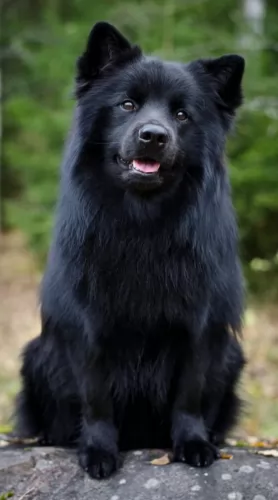 This is a Spitz type of dog from Sweden. It is Sweden’s national dog.The dog has always been used for herding and guarding livestock such as reindeer for the Sami people.
This is a Spitz type of dog from Sweden. It is Sweden’s national dog.The dog has always been used for herding and guarding livestock such as reindeer for the Sami people.
The dog is much the same as the Finnish Lapphund, and some even believe that it might be one and the same. The American Kennel Club recognizes them as two separate breeds.
It is one of the oldest Swedish dog breeds and also one of 3 Lapphund breeds.The Swedish Kennel Club recognized the Lapphund as a distinct breed in 1903.
The Federation Cynologique Internationale recognized this dog in 1944, and the United Kennel Club in 2006.
 The long, flocked white coat doesn’t have an undercoat and the large, round, dark eyes peer out of a cloud of white hair. His hair sheds very little and some owners of the Bolognese like to keep the woolly hair texture trimmed. He has black nails and a largish black nose. He is a small dog, with the male standing between 27–30cm and the female being slightly smaller.
The long, flocked white coat doesn’t have an undercoat and the large, round, dark eyes peer out of a cloud of white hair. His hair sheds very little and some owners of the Bolognese like to keep the woolly hair texture trimmed. He has black nails and a largish black nose. He is a small dog, with the male standing between 27–30cm and the female being slightly smaller.
These little dogs weigh in at about 4kg. A toy breed, he is considered to be a true companion dog. He is compact and squarely built with his floppy ears set high on his head. The long tail is carried curved over the dog’s back.
He is a friendly, social dog and can very easily become a typical lap-dog because he just craves human companionship. He wants to be with you and close to your side, whether you live in the city or in the countryside – he adapts to life wherever you are.
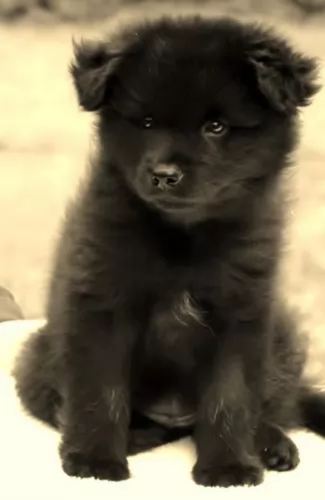 The Swedish Lapphund is a medium to large sized dog standing at between 40 to 51cm in height and weighing between 19 and 21kg.
The Swedish Lapphund is a medium to large sized dog standing at between 40 to 51cm in height and weighing between 19 and 21kg.
The head is wedge shaped and the ears erect. He has a thick double coat with fairly straight, silky hair that stands out from the body. Colors can be brown or black and sometimes there can be white markings. He sheds quite a bit, with some heavier seasonal shedding.
When you get one of these Spitz type dogs as your pet, you can be sure that you’re going to have an excellent pet and companion.
They’re independent dogs with strong wills and like to do their own thing. Training and socialization can change that and make him easy, well mannered and obedient.
They’re lively dogs and intelligent too. He is versatile, loving to be outdoors and being energetic with the children but being able to enjoy some quiet time indoors too. He is simply an excellent family pet and watchdog.
 The Bolognese is an easy-going, playful, intelligent little dog who will respond well to training and socialization. He can actually become calm and docile dog, although never dull as he can sometimes act like a clown and be quite entertaining. He makes a wonderful pet and becomes a loyal and devoted companion to adults and children.
The Bolognese is an easy-going, playful, intelligent little dog who will respond well to training and socialization. He can actually become calm and docile dog, although never dull as he can sometimes act like a clown and be quite entertaining. He makes a wonderful pet and becomes a loyal and devoted companion to adults and children.
Non-aggressive by nature, he will be friends with other pets in the home too. He is a small dog, so he isn’t going to be highly active and therefore won’t need loads of exercise, although he will love to go for a walk with you. He’ll also want to have games with the ball. He is such an amicable little dog and will easily adapt to life in the city or country, so long as he can be loved and cherished by his owners.
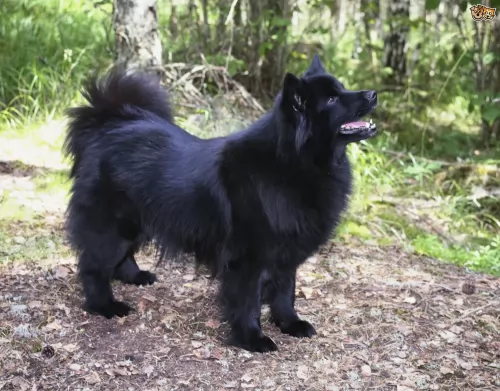 The Swedish Lapphund has always been a hardworking dog, herding reindeer for the Sami people.
The Swedish Lapphund has always been a hardworking dog, herding reindeer for the Sami people.
Today the Lapphund is a people-loving dog and wants to be constantly with his human family. He is intelligent, strong, independent, loyal, bold and loving. If you’re looking for an excellent family companion, this is it.
Do him a favor and don’t leave him outside without human companionship as he will become run-down and possibly destructive through no fault of his own. Bring him into your family and make him part of it and then he’s happy.
 Because this particular dog breed is uncommon, you won’t find many details on his health problems. When he is well looked after, he can reach 14 years of age. The Bolognese is from the Bichon Frise family so you can expect similar health problems, and also because he is a pedigree dog.
Because this particular dog breed is uncommon, you won’t find many details on his health problems. When he is well looked after, he can reach 14 years of age. The Bolognese is from the Bichon Frise family so you can expect similar health problems, and also because he is a pedigree dog.
Skin problems – battling with itchy skin conditions are a typical problem with the Bolognese.
Ear infections are common because of a lot of hair in the ear which can collect dirt.
Eye diseases - cataracts which can eventually lead to blindness.
Other health problems to watch for are heart disease, and epilepsy. Periodontitis is something you want to keep an eye on too because the small jaw is prone to developing periodontal infection which can lead to tooth loss.
Remember if you don’t want your Bolognese to be a parent, neutering and spaying provides major health benefits for your dogs.
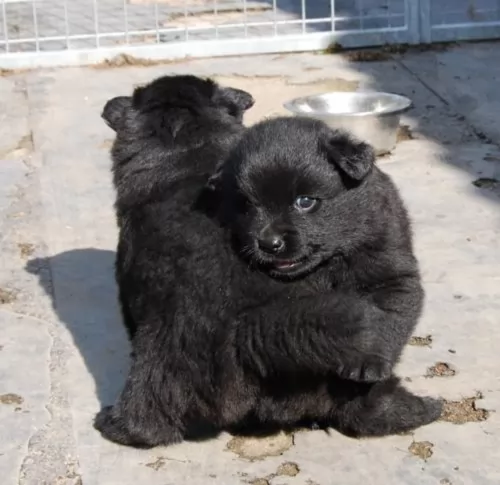 The Swedish Lapphud is a healthy dog breed, but even so he can get one of the many common dog illnesses there are.If you choose a puppy, make sure to get your pet from a reputable breeder to avoid more serious dog illnesses.
The Swedish Lapphud is a healthy dog breed, but even so he can get one of the many common dog illnesses there are.If you choose a puppy, make sure to get your pet from a reputable breeder to avoid more serious dog illnesses.
Diabetes Mellitus is a disease you might have to watch out for with this dog breed.
This is a disease of the pancreas. This organ has two groups of cells – one produces enzymes for proper digestion and the other produces the hormone insulin which regulates the level of glucose in the bloodstream.
Diabetes is when the pancreas fails to regulate blood sugar. Your dog will have increased thirst and urination, weight loss, and increased appetite.
Type I diabetes mellitus results from destruction of the insulin-producing beta cells, which is the most common type of diabetes in dogs. Dogs with this type of diabetes require insulin injections to stabilize blood sugar. Type II diabetes is more likely in older, obese dogs.
Dogs with diabetes mellitus will require insulin each day. If canine diabetes mellitus is properly regulated, prognosis for the dog is good.
 The little Bolognese isn’t a big shedder so he isn’t a high maintenance pet. His long cloud of white hair can’t just be left though, because it will become tangled and dirty. Get the right grooming tools because his hair will require a good brushing every 2nd day or so. Professional grooming will also be required to keep his coat in tip-top condition.
The little Bolognese isn’t a big shedder so he isn’t a high maintenance pet. His long cloud of white hair can’t just be left though, because it will become tangled and dirty. Get the right grooming tools because his hair will require a good brushing every 2nd day or so. Professional grooming will also be required to keep his coat in tip-top condition.
You may want to use commercially manufactured dog food from leading brands recommended by your vet for small breed dogs. There is absolutely nothing wrong with that, but just like you want some variety in your diet, so does your pet.
Rice, meat and vegetables can be added into his food now and then as well as ensuring he has some raw meat in his diet. This is important if you want to ensure the health of your dog. Never leave your pet without a constant supply of fresh, cool water.
You can actually buy pet ear cleaners but you have to very careful not to go too deep into your pet’s ears as this can cause damage.
Brush your dog’s teeth a couple of times a week. Never use human toothpaste. You can buy special dog’s toothpaste and toothbrush.
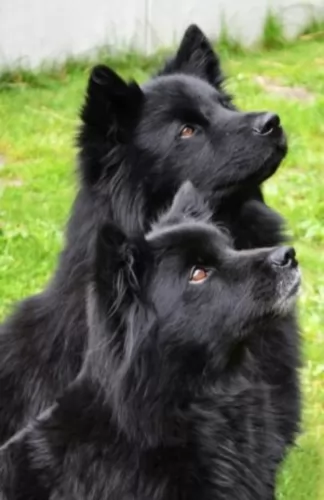 ●The Swedish Lapphund is an active dog and will require a high quality dog food. If you buy commercially manufactured dog food it should be appropriate to your dog’s age and activity levels.
●The Swedish Lapphund is an active dog and will require a high quality dog food. If you buy commercially manufactured dog food it should be appropriate to your dog’s age and activity levels.
Home-made food like boiled chicken, brown rice, spinach and sweet potatoes will do your pet the world of good, and chopped up, it can be added a couple of times a week to the dog’s dry kibble.
Try and feed some raw met occasionally as well. Clean, fresh water should be available at all times.
●The Lapphund is an active dog and he is going to reguire daily exercise that will keep him mentally and physically fit. Having a dog like this requires you being active yourself, and your Lapphund is going to love going on long walks or hikes. He will never get enough games with the children – he just loves the rough and tumble.
● Have his vaccines attended to. There are training classes as well as boarding kennels that won’t accept your dog unless his vaccines are up to date.
● Have your dog spayed or neutered if you don’t want your dogs to have puppies.
● Brush his coat twice a week. Check inside his ears and inside his mouth for redness and infection.